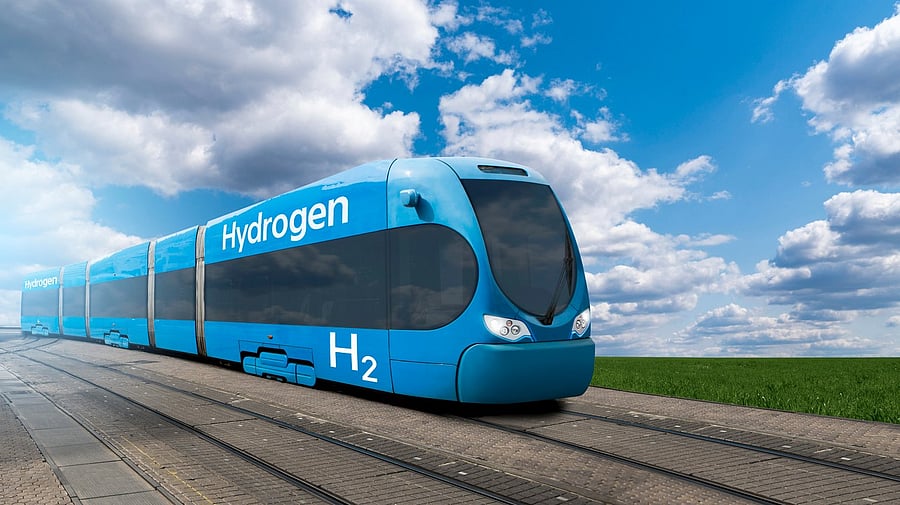
Illustration for representational purposes.
Credit: iStock Photo
In a few weeks from now, India is set to mark a historic milestone by integrating its first hydrogen-powered train into the railways network.
The train, which will reportedly begin operating on the Jind-Sonipat route from May this year, will come with a 1,200-horsepower hydrogen engine, making it the most powerful hydrogen-powered train in the world (hydrogen engines typically have 600 to 800 horsepower).
What we know about India's first hydrogen-powered train?
As per reports, the train will have a top speed of 110 km/h, and will have a passenger capacity that can accommodate 2,638 people.
As mentioned earlier, it will come with 1,200 hp engine, making it the most powerful train of its kind globally.
Why is it significant?
The integration of a hydrogen-powered train into the Indian Railways' network would be a major first step towards sustainable transport for India.
Hydrogen-powered trains use hydrogen fuel cells and only release water and heat as byproducts, thereby eliminating emissions altogether.
Towards net-zero
The operationalisation of the hydrogen-powered train will be major milestone towards the Indian Railways' goal of achieving net-zero emissions by 2030.
With the launch of the train, India will enter an elite club comprising countries like Germany, China, and the UK, which have adopted hydrogen rail technology.
